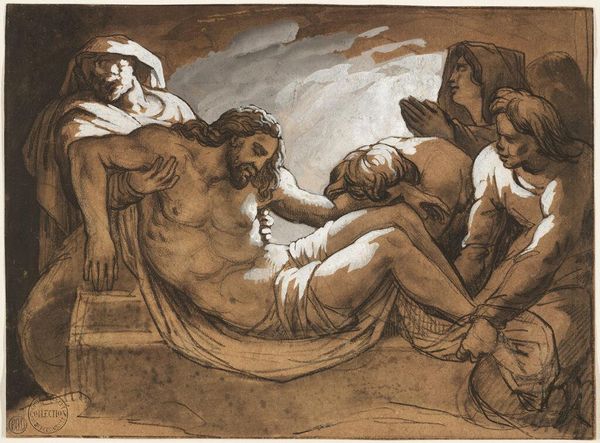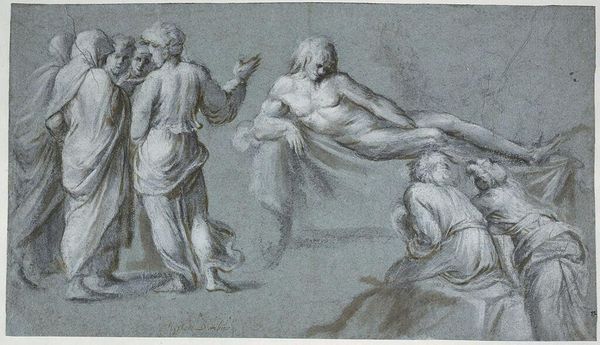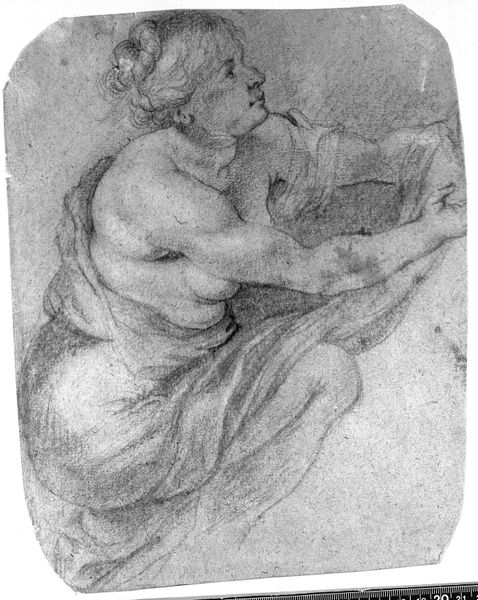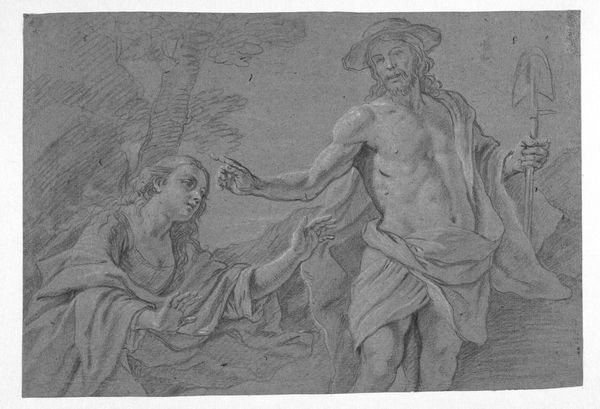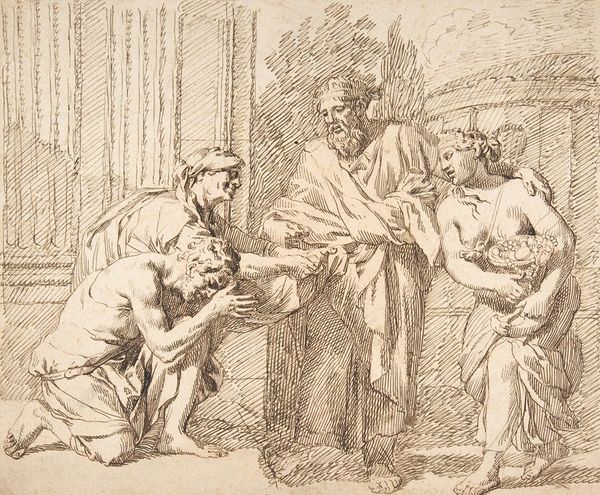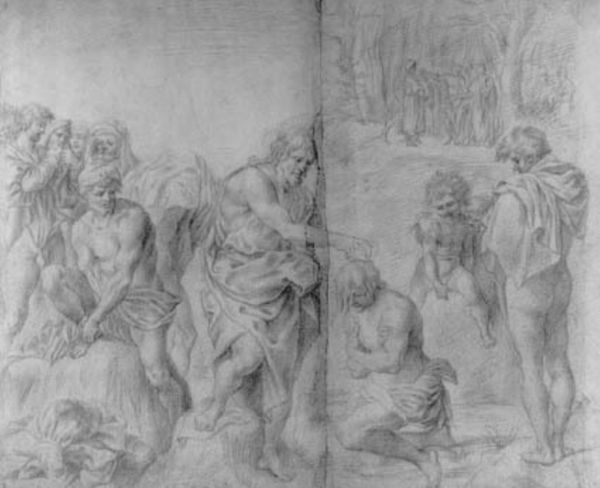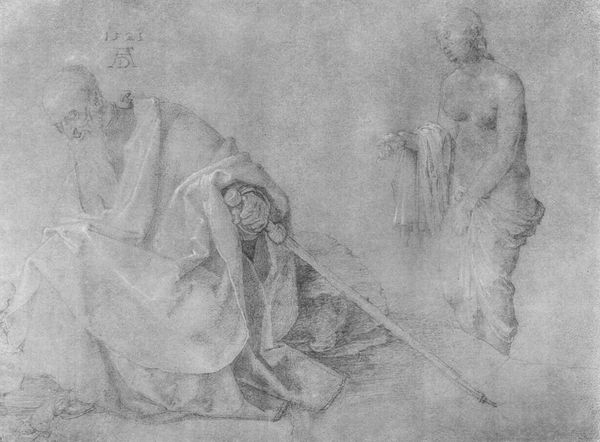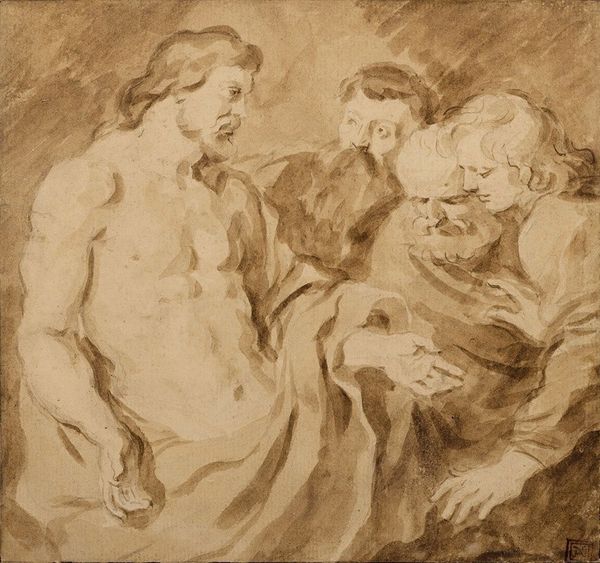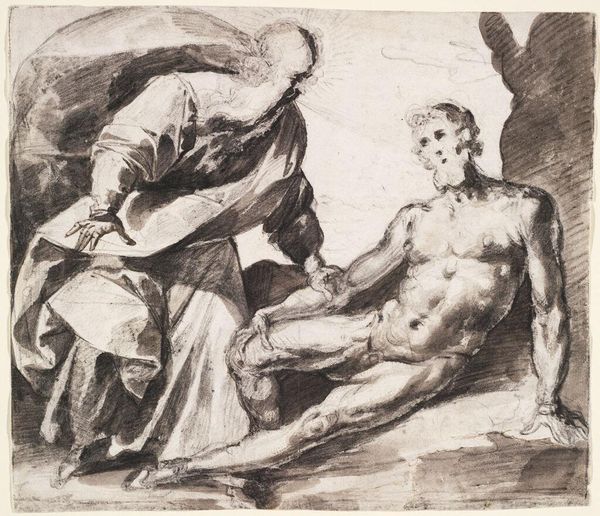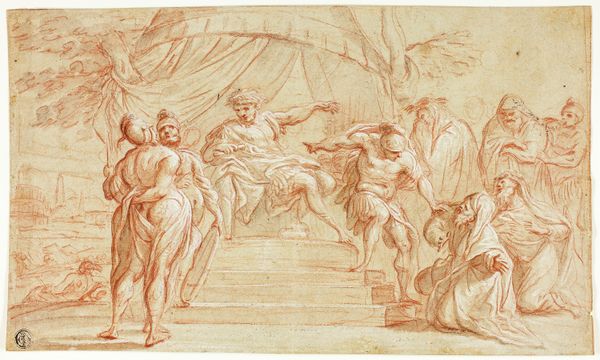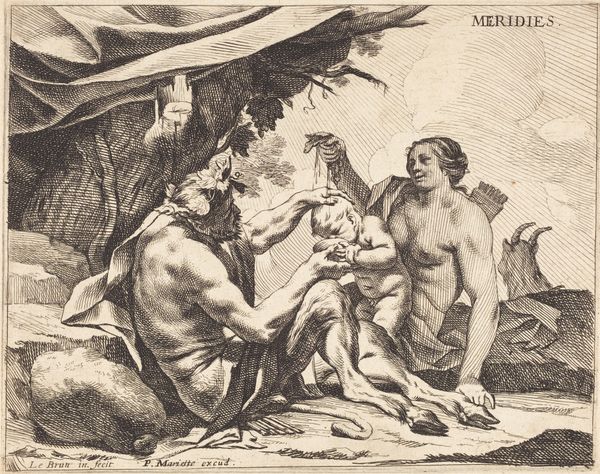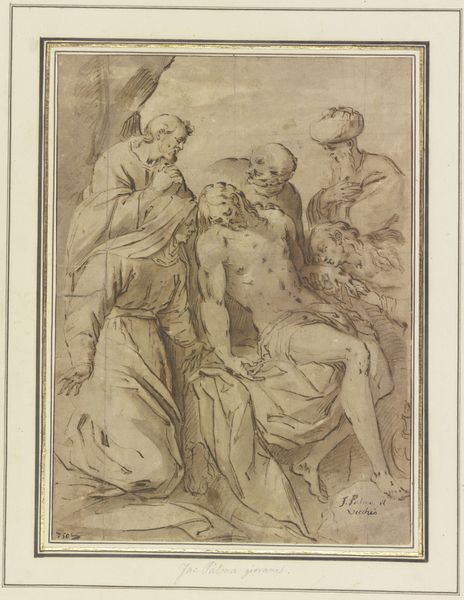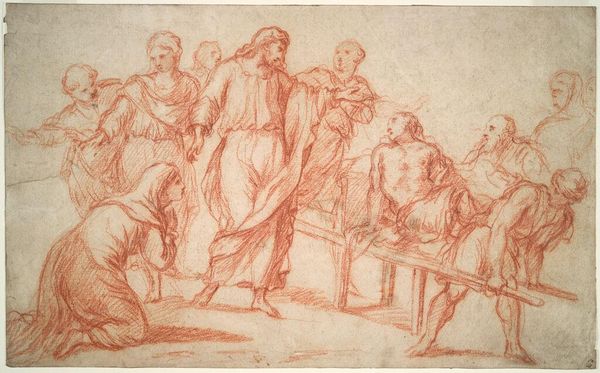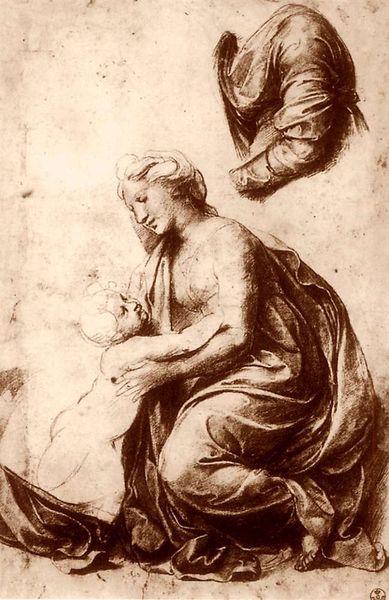
drawing, pencil
#
portrait
#
pencil drawn
#
drawing
#
pencil sketch
#
charcoal drawing
#
figuration
#
11_renaissance
#
pencil drawing
#
pencil
#
pencil work
Dimensions: 221 mm (height) x 251 mm (width) (bladmaal)
Editor: This is Willem Panneels' "Pythagoras of Samos(?)," created between 1628 and 1630. It's a drawing, using pencil, currently held at the SMK in Copenhagen. The figures seem to be emerging from the background; it's so dynamic. What stands out to you most about this sketch? Curator: The dynamism you notice speaks volumes. Panneels seems to capture not just likeness but the very *idea* of Pythagoras. Notice the drapery – it swirls and flows, almost alive. What does that choice of depiction convey to you? How does the looseness and sketch-like feel relate to the image itself? Editor: I see... it's not just a static portrait. The fluidity gives it a sense of ongoing thought and discovery. The way the lines aren't fully defined also makes it feel like a work in progress – perfect for representing a philosopher constantly seeking knowledge. What do you think of that open interpretation? Curator: Precisely. And consider the slight vagueness around his identity: "Pythagoras of Samos(?)." This signals the Renaissance fascination with classical figures, often pieced together from fragmented accounts. Do you get a sense of Panneels using Pythagoras' established persona, such as that of a teacher and numerologist, in any recognizable forms, either direct or metaphorical? Editor: Hmm, not directly... I am trying to view this using everything that has been discussed, and even what has not been overtly explored. It certainly has offered some new viewpoints on what otherwise would be a simple character study of a historical figure! Curator: And therein lies its power! It encapsulates the Renaissance's re-engagement with classical thought and hints to the endless pursuit of knowledge through inquiry and representation.
Comments
No comments
Be the first to comment and join the conversation on the ultimate creative platform.
